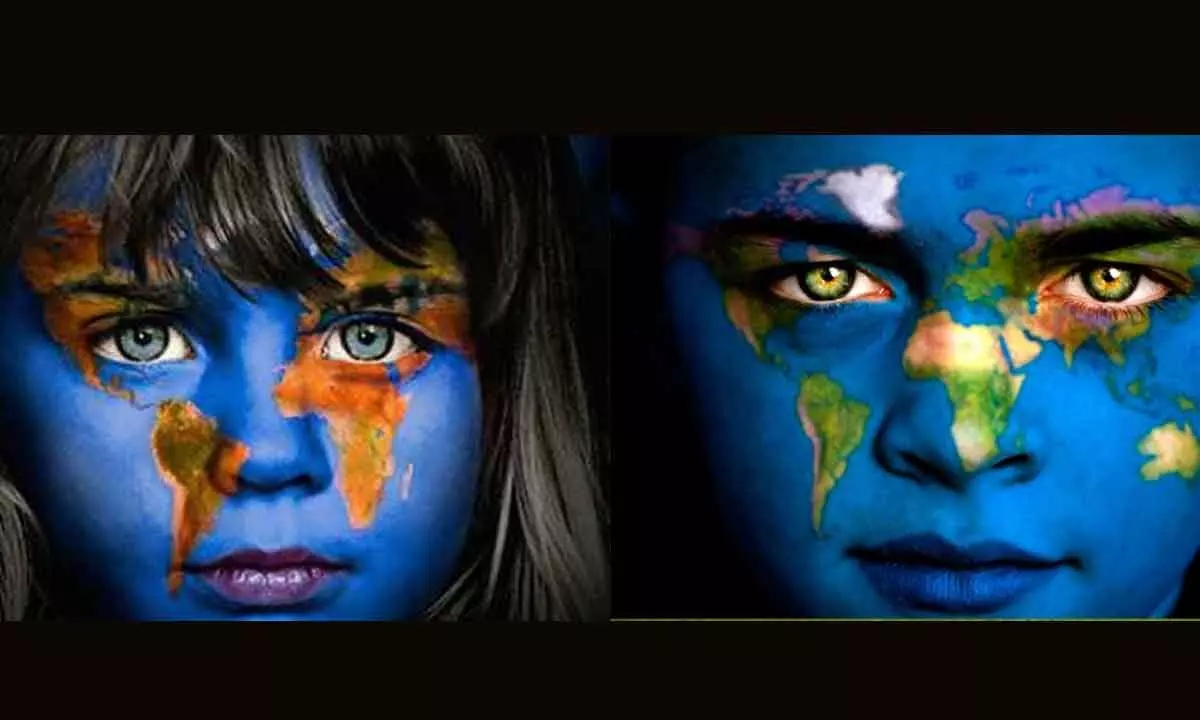Making a better world for kids
We are more connected than ever before, complex global challenges such as climate change and health epidemics call for leaders and citizens to collaborate to solve problems
image for illustrative purpose

In a world of rapid change, young people need the right mix of skills to thrive. Access to information is increasing, and memorizing facts is less important today than in the past. Although academic skills remain important, they are not sufficient to foster thoughtful, productive, and engaged citizens. Young people everywhere need to develop a greater breadth of skills to evaluate and apply knowledge in ways that meet the new demands of our changing social and economic landscape.
One cliché is that kids love technology and are confident using it. Yet, this oversimplifies their relationship with the digital world, which has different facets. Today's kids are using technology on an unprecedented scale. Alongside education, Covid-19 has pushed extracurricular into the virtual realm as well.
Skills like communication, teamwork, critical thinking, and flexibility have always been important for work and life. But they will be even more crucial for future generations. Rapid advances in technology are transforming the world of work, and nearly 100 million jobs around the globe will go unfilled due to lack of skills. We are also more connected than ever before, and complex global challenges such as climate change and health epidemics call for leaders and citizens who are able to collaborate with diverse groups to solve problems. Software and communication technology companies whose products are used by kids can help educate them by offering online guides or tech talks.
The Food and Agriculture Organization (FAO) noted last year that climate change is becoming a key force behind the recent continued rise in global hunger, and as escalating droughts and flooding degrade food production, the next generation of children will bear the greatest burden of hunger and malnutrition. We are already seeing evidence of extreme weather events driven by climate change creating more frequent and more destructive natural disasters, and while future forecasts vary, according to the International Organization for Migration, the most frequently cited number of environmental migrants expected worldwide by 2050 is 200 million, with estimates as high as one billion.
As temperatures increase and water becomes scarcer it is children who will feel the deadliest impact of waterborne diseases. Today, more than half a billion children live in areas with extremely high flood occurrence and almost 160 million in high-drought severity zones. Regions like the Sahel, which are especially reliant on agriculture, grazing and fishing, are especially vulnerable to the effects of climate change. In this arid region, rains are projected to get even shorter and less predictable in the future, and alarmingly, the region is warming up at a rate one and a half times faster than the global average. In the Sahel, the climate gets hotter and the poor get poorer, and it is all too common for armed groups to exploit the social grievances that arise under such pressurized conditions.
And, by 2040, one in four children will live in areas of extreme water stress and thousands will be made sick by polluted water. The management and protection of clean, plentiful, accessible groundwater supplies, and the management of plastic waste are very fast becoming defining child health issues for our time.
To turn the tide on air pollution, governments and business must work hand in hand to reduce fossil fuel consumption, develop cleaner agricultural, industrial and transport systems and invest in scaling renewable energy sources. Many governments have taken action to curb pollution from power plants, industrial facilities and road vehicles with strict regulations.
Africa's first recycled plastic classroom was built earlier this year in Côte d'Ivoire, in just a few weeks. It cost 30 per cent less than traditional classrooms. This innovative approach of transforming plastic waste into construction bricks has the potential to turn a plastic waste management challenge into an opportunity, by addressing the right to an education with the construction of schools, empowering these communities and cleaning up the environment at the same time.
Mental health disorders among under 18s have been rising steadily over the past 30 years and depression is now among the leading causes of disability in the young. The World Health Organization (WHO) estimates that 62,000 adolescents died in 2016 because of self-harm, which is now the third leading cause of death for adolescents aged 15-19.
WHO's mental health expert Shekhar Saxena, says "when it comes to mental health, all countries are developing countries." With most low-income and middle-income countries spending less than one per cent of their total health budget on mental health, and high-income countries just 4-5 per cent, it is clear that it needs greater priority around the world.

